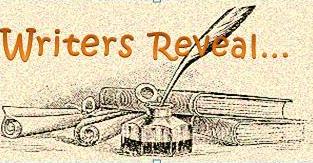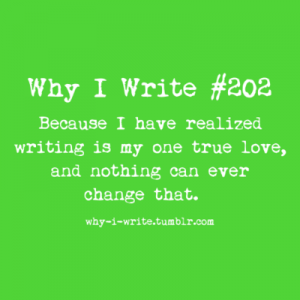by Naomi L. | July 18, 2014 | J.C. Wolfe's Writing, Poetry |
A “Gift from God”
Is what they said you are.
They called you a surprise,
Sent to bring more joy
Into our lives.
And they were right,
Because you’re nothing short
Of a miracle.
You’re the light
That shines every day
In our hearts.
You’re the sun
That brightens
Our gloomiest days.
You’re the flower
That graces us
With extraordinary beauty.
You’re the fire
That burns fiercely
On the theater stage.
You’re the sugar
That makes our lives
A little sweeter.
You’re the songbird
That always sings
With such a lovely voice.
You’re the rainbow
That paints our world
In vivid colors.
You’re the star
That illuminates
Our very souls.
But above all,
You’re the miracle
That fills our lives
With unending love.
May God bless you
As you have blessed us,
As you bless me every day.
I love you!
Happy Birthday to my amazing baby sister! Thank you for the miracle you are! Blessings to you on your special day and for your whole life. I love you!
by Naomi L. | July 16, 2014 | Blog, Creative Writing |
Time for July’s round of Writer’s Reveal! Once again, it was my turn to suggest the topic of the month, so the prompt I chose this time was: “the story that changed my life”. Hope you enjoy the topic, and be sure to check out everyone else’s take on this subject. Enjoy!
Five Stories That Changed My Life
 I chose this topic because I thought it would be interesting to see how everyone would interpret it. What exactly constitutes a life-changing story? Is it one that took your life in a different direction than it would otherwise have gone? Is it one that motivated you to pursue your dreams? Is it one that made you look at the world differently? There are many ways to define life-changing stories, and I consider mine to be the ones that inspired me to become the writer I am today.
I chose this topic because I thought it would be interesting to see how everyone would interpret it. What exactly constitutes a life-changing story? Is it one that took your life in a different direction than it would otherwise have gone? Is it one that motivated you to pursue your dreams? Is it one that made you look at the world differently? There are many ways to define life-changing stories, and I consider mine to be the ones that inspired me to become the writer I am today.
Now I know the prompt I sent refers to a single story, but when I thought about it, I realized how difficult it would be to choose just one. There are many stories that have played a role in helping me grow as a writer, and I can honestly say that my life would likely have gone a different way were it not for every one of them. So to summarize my journey as a writer and as a person, here are five of the stories that changed my life:
1) The Cat in the Hat – Maybe two years old is too young for anything to be life-changing yet, but reading The Cat in the Hat with my mom is one of the first memories I have of enjoying a good book. Dr. Seuss’s stories sparked my love of reading at an early age, and that was the all-important first step into my passion for creative writing.
2) Charlie and the Chocolate Factory – I’ve loved reading since I was little, but Charlie and the Chocolate Factory was the story that first motivated me to become a writer. Roald Dahl’s colorful worlds and fantastic adventures inspired my imagination, and thanks to his books, I’ve known since I was nine years old that creating stories of my own is what I want to do for the rest of my life.
3) Harry Potter – Wanting to write stories wasn’t enough to make me a writer yet; I had to know how to do it well. J.K. Rowling’s Harry Potter series taught me dozens of excellent storytelling techniques such as character development, plot construction and conservation of detail. These novels are also the reason I decided at age 11 to focus on writing in the fantasy genre.
4) The Mists of Avalon – I first read Marion Zimmer Bradley’s Arthurian fantasy saga at the age of 14, which was a critical point in my personal development. The Mists of Avalon was the series that introduced me to adult themes such as religious fanaticism, political radicalism and feminism, and it did so in a way that made me feel empowered as a woman. These books are what inspired me to create strong female characters, a practice I still keep to today.
5) My parents’ story – This last one isn’t a novel, though I strongly believe it should be. The most inspiring story I’ve ever heard didn’t come from a book, but from my own parents. The story of their relationship is one that has inspired me my whole life, and the best part is that it’s still being written! My parents are the reason I believe in true love, and why I’ve always enjoyed reading and writing romance. It’s not a novel, but it’s still my all-time favorite story!
These are the stories that I believe have changed my life. They may seem simple or insignificant to most, but if they played even the tiniest part in my growth as a writer and a person, then they definitely changed me for the better.
What about you? What are the stories that changed your life?
This has been a special topic post for Writers Reveal, a monthly blog swap among several talented writers. Be sure to check out the other blogs participating in the event. Thanks for reading!

Other bloggers in Writers Reveal
Melissa Khalinsky: Melissa Writes
Becky Fyfe: Imagine! Create! Write!
Ashley Howland: Ghostnapped
Emily Hawker: You Learn Something New Every Day
We’re looking for more bloggers to join our circle! If you’re interested in participating in this monthly roundup, be sure to contact Emily Hawker so she can include you in our email list. Thank you!
by Naomi L. | July 14, 2014 | Blog, Word of the Week |
Word: extrapolate
Pronunciation: ik-STRA-pə-layt
Part of Speech: verb
Definition: extend the application of (a method or conclusion) to an unknown situation by assuming that existing trends will continue or similar methods will be applicable
Source: Oxford Dictionaries
I’m going with a more scientific word this week. Though I rarely see it in fiction, the word “extrapolate” does come up in a lot of the academic papers I read. It’s a verb that defines a practice many scientists adopt: to draw conclusions about unknown situations based on data previously collected from similar scenarios. Think of it as a fancy word for “guesstimate”. It may not sound very scientific when you put it like that, but it’s immensely helpful when constructing theories, and you’d be surprised how often we rely on this method to make sense of the world around us.
To “extrapolate” information is to extend it to theoretical scenarios in order to estimate potential results, based on the assumption that the same methods will continue to be applicable in similar situations. The word is a combination of the Latin preposition extra “outside” and a shortened form of the verb “interpolate” (“insert between fixed points”). The latter word contains the root verb polire, which means “to polish”.
You’d probably get the most use out of “extrapolate” if you write a lot of scientific language; in mathematics, for instance, it indicates the extension of data by inferring unknown values from existing trends. In fiction, it may work as a partial synonym for “estimate”, though this would likely still depend heavily on context. I don’t recall reading the latter use very often, but it’s your call whether “extrapolate” can work as a suitable verb in your stories. You may never use it for your own writing, but at least now you’ll know what it means if you ever happen to read a scientific article!
What are your thoughts on this word? Any suggestions for future “Word of the Week” featured words?
by Naomi L. | July 11, 2014 | J.C. Wolfe's Writing, Poetry |
Take one extraordinary mind.
Add four tablespoons of fresh ideas
(Assorted flavors work best),
Two cups of emotion,
And a pinch of eccentricity.
Stir well,
Seasoning with experience
At regular intervals (to taste).
Bake for several years
Until creativity forms,
Then let sit for another few years
Until motivation rises.
Enjoy indefinitely!
Makes: one writer
Serves: one audience of readers
Based on a writing prompt from a social event on Writer’s Carnival: Recipe Medley.
Share your favorite recipe! It can be a real recipe for food or beverage OR it can be a totally made up one. Your choice!
I took the opportunity to imagine what makes a writer, and it was a lot of fun trying to write it all in the form of a recipe! I hope you enjoy what I’ve written. Thanks for reading!
by Naomi L. | July 9, 2014 | Blog, Creative Writing |
So recently, I was tagged in a Why I Write chain by Emily Hawker, one of the bloggers in our Writers Reveal circle. Now I have to answer a handful of questions on – you guessed it – why I write. Sounds simple enough. Thanks for tagging me, Emily! Here goes nothing!
Why do I write?
 I’ve already covered this question pretty thoroughly in one of my very first blog posts. There are several reasons I write, but they all trace back to one major point. In a nutshell, I write because writing makes me happy. It’s my calling, the air I breathe, the practice that gives my life purpose. It’s the one thing I feel with every last fiber of my being that I was meant to do. I’m not a writer because I write; I write because I am a writer.
I’ve already covered this question pretty thoroughly in one of my very first blog posts. There are several reasons I write, but they all trace back to one major point. In a nutshell, I write because writing makes me happy. It’s my calling, the air I breathe, the practice that gives my life purpose. It’s the one thing I feel with every last fiber of my being that I was meant to do. I’m not a writer because I write; I write because I am a writer.
What am I working on?
Right now, I’m mostly working on this blog and, if they count, academic papers for grad school. I also have plans to compile some short stories for self-publication, as well as devote more time to those sci-fi/fantasy novels that have been bouncing around in my mind for a few years now.
How does my writing differ from others in my genre?
To answer this question, I’d first need to identify my “genre”. Generally speaking, though, I prefer to write stories based on the tons of research I like do on subjects that interest me. In fantasy, much of my writing has roots in ancient mythology, as I mostly write magical creatures based on the mythical beasts I used to read about all the time as a kid. In science fiction, I like to write based on the real scientific subjects I’ve studied in college as a Biology major. And in romance, most of the love relationships I write about start out as friendships, because I’ve learned from my parents’ relationship and personal experience that love based on friendship is the best kind of love. All these practices may not make my writing better than that of other writers, but they certainly make it mine!
Why do I write what I do?
I like to try my hand at as many different styles and genres as I can, but I do have my favorites. I write fantasy and science fiction because they’re a great escape from the confines of reality. I write romance because one of my favorite themes in fiction and in real life is love, and I enjoy expressing my idealistic views on the subject through storytelling. And I write poetry because it’s an excellent emotional outlet.
How does my writing process work?
I don’t really have a set process when it comes to writing, but I suppose it consists of a lot of daydreaming. For most of my work, ideas usually come to me during my idle thinking, and the ones I like best get written down and eventually become the flash fiction stories and poems I share online. As for longer works such as short stories and novels, I spend a significant amount of time planning them in my head before I even write the first word. I focus on telling a good story during the writing stage, and I put equal effort into editing so as to satisfy my high standards for technique. In the end, what I’m (hopefully) left with are stories that I can be proud to present to the world. Though my processes differ from each other, what all my works have in common is that I pour my heart and soul into every word I write. Writing is my ultimate passion, and I wouldn’t have it any other way!
Passing the Torch
Now I’m supposed to tag three people to answer the same questions on why they write. For this chain, I choose Vanessa Levin-Pompetzki, Beth Teliho and Inion N. Mathair (which technically makes four people, but two of them write for the same blog!). Can’t wait to read about why you all write! Good luck, ladies!

 I chose this topic because I thought it would be interesting to see how everyone would interpret it. What exactly constitutes a life-changing story? Is it one that took your life in a different direction than it would otherwise have gone? Is it one that motivated you to pursue your dreams? Is it one that made you look at the world differently? There are many ways to define life-changing stories, and I consider mine to be the ones that inspired me to become the writer I am today.
I chose this topic because I thought it would be interesting to see how everyone would interpret it. What exactly constitutes a life-changing story? Is it one that took your life in a different direction than it would otherwise have gone? Is it one that motivated you to pursue your dreams? Is it one that made you look at the world differently? There are many ways to define life-changing stories, and I consider mine to be the ones that inspired me to become the writer I am today.


Recent Comments